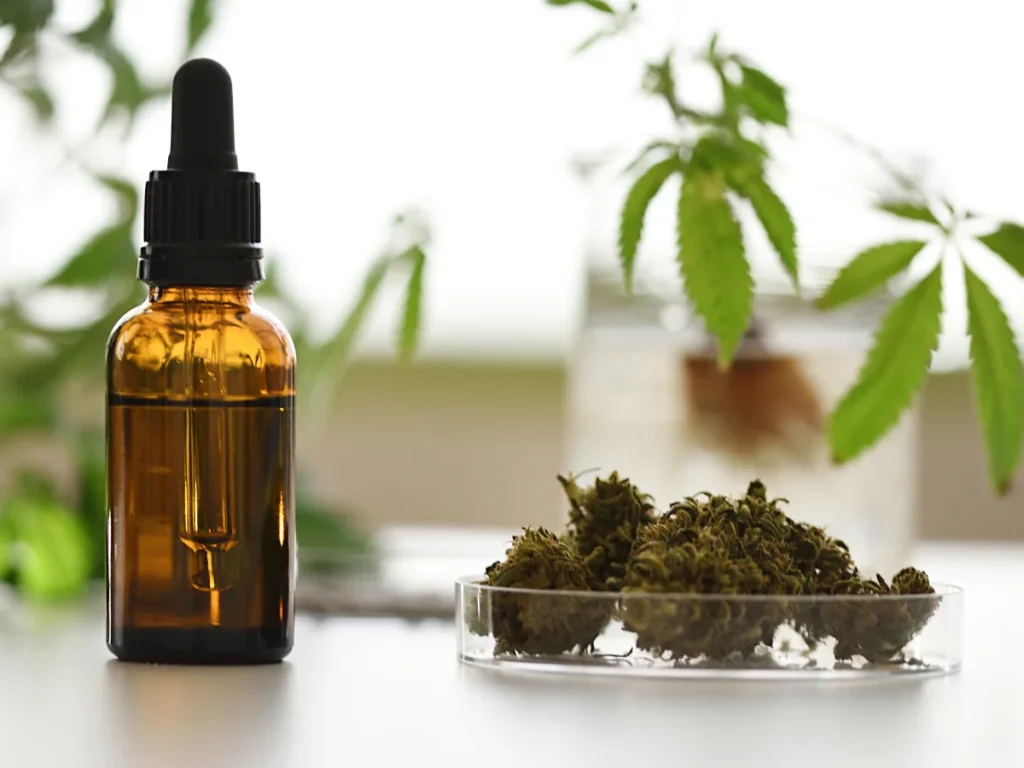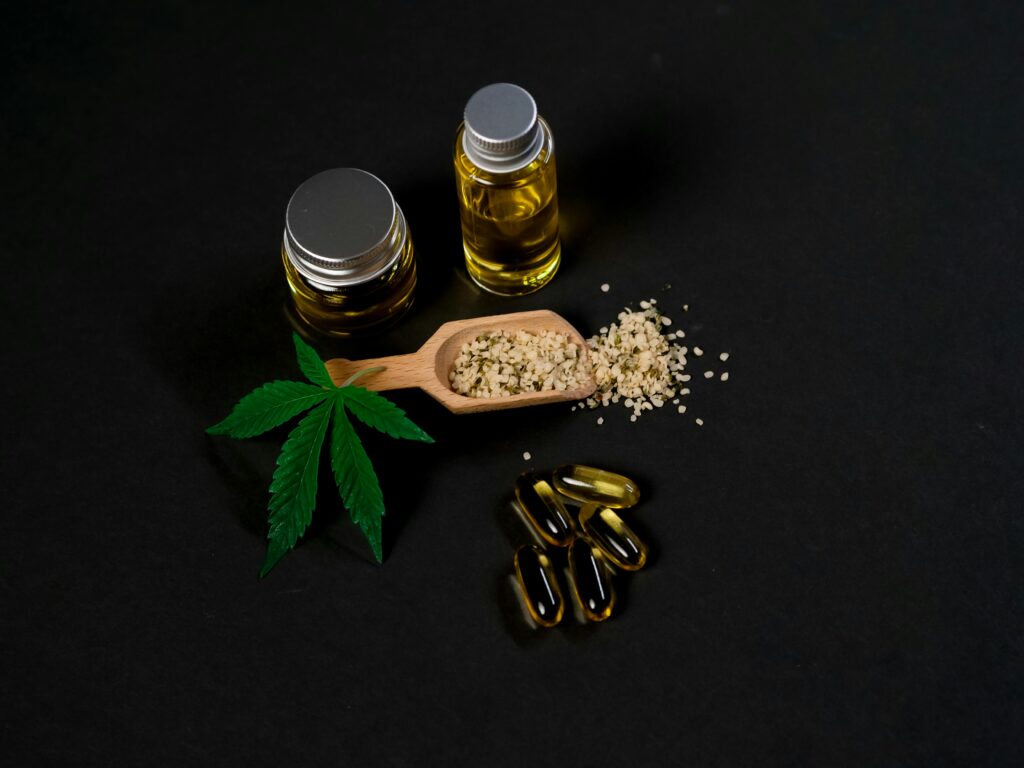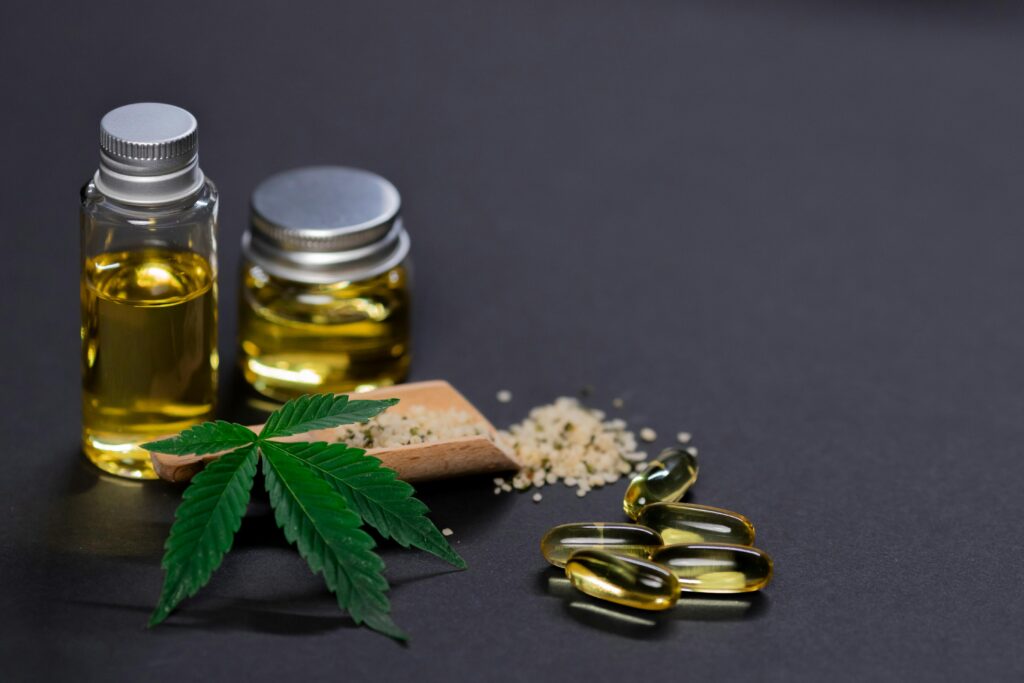
The hype in recent years has been all about CBD, short for cannabidiol. CBD body balms, creams, and even chewies have been all the rage recently— and for good reason! But did you know that CBD’s close cousin, CBC — short for cannabichromene, may offer similar benefits? When researching the difference between CBC vs. CBD, knowing the difference between the two will be essential for your well-being.
Though CBC and CBD both come from the cannabis plant, if you confuse the two terms, you may find yourself ingesting the wrong product, products with harmful effects.
So, how are CBC and CBD similar and different?
Join us! In this article, we’ll help you gain clarity on all topics, CBC vs. CBD-related, so you can make a more informed decision before choosing the right cannabinoids for you.
We’ll cover topics, such as:
- The major differences between CBC and CBD
- What makes CBD and CBC, well, CBD and CBC (defining each cannabinoid)
- Advantages and disadvantages of consuming CBC or CBD
- Similarities and differences in sensations and what you’ll feel when you ingest CBD or CBC
- When to take CBC, and when to take CBD
- Concluding thoughts on CBC and CBD
Key differences between CBC vs. CBD
| Cannabichromene (CBC) | Cannabidiol (CBD) |
| 1. CBC is not as widely available as CBD in today’s market. 2. CBC may have the potential to help with neurological and inflammatory conditions. | 1. CBD has garnered more research than CBC. 2. Currently, CBD may be more versatile as a product than CBC. |
What is CBD exactly?

Before we dive into greater detail about CBD and CBC, we’ll want to look at one of the most popular cannabis-based products on today’s market, Cannabidiol (CBD).
CBD is a non-intoxicating chemical compound that’s found in the cannabis sativa plant. CBD may have a wide variety of health benefits.
The beginning of the 21st century witnessed an explosion of popularity around cannabidiol products. For example, in the United States, many states began legalizing CBD products for medical and, most recently, commercial use.
As such, CBD may be one of the most familiar cannabis-based products on the market. But while many people are familiar with using CBD for its many potential benefits, few people are aware of its close cousin, cannabichromene (CBC).
So, what is CBC?

So, you’ve likely heard of THC, CBD, and CBG. But, what about CBC? What has everyone talking about CBC?
While similar to CBD, cannabichromene (CBC) is a non-intoxicating product that doesn’t affect your senses or make you feel “high” like THC-based products.
What’s more, CBC may offer many therapeutic benefits for our mental health and overall well-being. Research is ongoing, though.
CBC isn’t usually found in cannabis sativa plants. In fact, the compound isn’t extracted from the cannabis flower but is derived from the stem.
Furthermore, the stem of the cannabis flower is the part of the cannabis plant from which CBC derives itself.
CBC was discovered about 50 years ago and has been prominent in medical research. And, while CBC may not receive as much attention as its more popular cousins CBD and THC, it may offer very promising medical benefits.
For example, recent research is promising on the effects of CBC on brain health with neural stem progenitor cells (Shinjyo and Marzo, 2013).
Compared to CBD, CBC may bind to and modulate the activity of key receptors in our nervous system — and may be used as a helpful tool for pain relief.
As such, many research facilities are looking into CBC as a possible support tool for inflammatory and pain-related conditions.
With all the potential benefits of CBC, more research is needed to confirm its efficacy and use. Until then, we’re thrilled to hear that CBC may provide some much needed therapeutic benefit to those in need.
Advantages and disadvantages of CBD and CBC

So, how do CBD and CBC compare? What are the pros and cons of each?
While both cannabidiol and cannabichromene are non-intoxicating cannabinoids, in that they won’t make you feel “high” like THC, a few main differences exist between each.
Let’s take a look at the pros and cons of each.
Pros and cons of CBC
While both CBC and CBD’s effects are fairly subtle, CBC offers the following positives:
- Potential anti-inflammatory benefits: Research has found that CBC binds to receptors in the nervous system, making CBC a potential tool for managing inflammatory conditions and illnesses.
- Potential neurological benefits: CBC may provide neurological health by influencing neural stem progenitor cells. As such, this cannabinoid may be able to help with neurological conditions.
- Potential pain relief: CBC’s direct communication with the nervous system may make it a viable option for pain relief for a number of conditions.
The potential downsides of CBC include:
- Resource availability: CBC is derived from very specific types of cannabis plants. Also, CBC derives from stem cells rather than flowers, which may make CBC less accessible.
- Research is ongoing: Given the few studies on CBC that exist, research on CBC is still in its early stages, and we have a ways to go in terms of learning about its potential benefits and side effects.
Pros and cons of CBD
For those considering using CBD or who are new to CBD, like CBC, CBD offers many advantages and disadvantages. The pros of CBD include:
- More research is available: CBD has gained recognition in research circles for its potential health benefits. Many people have claimed that CBD is useful for its stress-reducing and pain-relieving effects, among other benefits.
- CBD is legal in many U.S. states: CBD may be more accessible to consumers than other cannabinoid products. For that reason, CBD has become very popular.
- CBD can be found in many products: Broad spectrum CBD products, CBD isolates, CBC creams, CBD oils, and chewies are a few of the many products available on today’s market. CBD can be made into many different products, making it a popular choice among consumers.
The disadvantages of CBD include the following:
- Variability in quality: A great deal of variability exists in the market for CBD products. Therefore, you’ll want to conduct thorough research before choosing a CBD vendor for your CBD needs. For example, at PhytosanaCBD, all of our products are 100% organic, all-natural and non-GMO, and 3rd-party lab-verified and tested.
- Potential side effects: some people who ingest CBD report experiencing minor side effects like dry mouth or changes in appetite.
- Interactions with other drugs: CBD can interact with other medications, so if you’re taking other medications, we recommend reaching out to your trusted healthcare professional before using CBD. Doing so will ensure you make the most healthy and best decisions for your well-being and overall healthcare needs.
Similarities and differences in how CBC and CBD make you feel

“So, I understand the difference between CBC and CBD now. But, do they make you feel different?” You might be wondering.
While both types of cannabinoids are non-intoxicating — meaning they won’t make you feel the same “high” feeling as THC — subtle differences exist between both CBC and CBD. Their effects are often subtle, but differences exist between the two.
For example, CBC products may offer mild relief from inflammation and a sense of mild relaxation. In contrast, CBD cannabinoids may help decrease anxiety and stress without causing drowsiness, may alleviate pain and discomfort, and may help regulate sleep patterns for a more restful night’s sleep.
Though many people claim that CBC and CBD don’t produce the intoxicating effects that THC products do, individual responses always vary.
With that being said, if you plan on using cannabinoids like CBC or CBD, consider starting with lower doses, monitoring your body’s reaction, and adjusting your dose sizes as needed.
And, if you’re looking for guidance for cannabinoid products given your health and lifestyle, talk to your doctor, healthcare provider, or cannabis specialist for more information on CBD and CBC.
Ingesting CBD and CBC together

While some users choose to take CBD and THC together, the question is still out about CBD and CBC. Can you take CBD and CBC at the same time?
While both cannabinoids offer unique potential benefits, research is scarce in the territory of using CBC and CBD together, or what is known as the entourage effect (that is, using different cannabinoids together to produce greater health benefits and effects).
Some individuals report positive outcomes when using these two cannabinoids in tandem. But, again, more research is needed to confirm the effects of using CBD and CBC together.
If you’re thinking of trying CBD and CBC together, we recommend checking in with your trusted healthcare provider first.
We also always recommend starting small.
Small doses can help you better monitor your body’s response to the cannabinoids so you can reap the benefits of CBD and CBC.
In general, though, CBD and CBC may be a promising solution for its potential therapeutic benefits on the nervous system and other body systems.
We’re excited to see continued research on how the hemp plant and lesser-known cannabinoids — like CBC — can help support our body’s endocannabinoid system and a better quality of life.
When to take CBD and CBC

Part of making the most of the potential therapeutic effects of CBD and CBC is knowing which times of the day to take CBD and CBC. We hate to be equivocal, but the timing of when to take CBD and CBC largely depends on your specific wellness goals.
With that being said, many of our customers prefer to incorporate these cannabinoids into their everyday routines. Some take CBD in the morning, some take CBC at night, and some take both (or either) in the morning and night.
If you’re not sure about taking CBD or CBC or are considering using it for pain management among other conditions, you may want to reach out to your healthcare team for tailored guidance on CBC and CBD use.
We mention reaching out to a healthcare provider because individual responses to cannabinoids, hemp plant-based products, and even marijuana can vary from person to person. We can’t emphasize enough that you should always listen to your body.
As you’re listening, you can then make adjustments as needed to achieve the desired effects you had in mind.
Tips for you and your horse on CBD
We understand that your horse isn’t just an animal. They’re a partner, an athlete, and a cherished part of your life.
Give them the gift of equine health this season, and they’ll give you their heart in return.
For jaw-dropping deals on the industry’s finest all-natural, non-GMO, 100% organic CBD, mosey on over to our online CBD shop (open 24/7).
Our carefully curated hemp-derived CBD products that horses absolutely love, including yummy chewies, nourishing hemp crumbles, and soothing, full-spectrum CBD oil. Visit our shop for limited-time deals on all of our horse, dog, and human CBD products!
PhytosanaCBD’s verdict on CBC vs. CBD: Which do you choose?

In summary, CBC shows promise. Research shows that CBC may help reduce pain without the intoxicating effects of THC and other marijuana-based products.
What’s more, CBC may help with inflammation and may support neurological health (Valeri, et. al., 2023). Of course, research is ongoing, so take these findings with a grain of salt.
While CBD is well-established for its versatility as a product and its potential benefits in managing anxiety, pain, and other conditions, research is also still ongoing.
Ultimately, we say that to make an informed decision about whether CBD or CBC is right for you, you need to assess your specific circumstances, medical history, and desired outcomes to guide you in finding which cannabinoid is best for you.
In other words, both can be helpful depending on your needs.
If you’re looking for more information about the differences between CBD, CBN, CBC, and other cannabinoids, don’t hesitate to reach out to our knowledgeable cannabinoid specialists.
Our team has years of experience crafting and curating high-quality CBD-based products for humans and their animal friends. For a direct line to one of our cannabinoid specialists, contact us at (951) 395-5659 or info@phytosanacbd.com anytime.
PhytosanaCBD: Helping Horses, Pets, and You — One CBD Solution at a Time!

